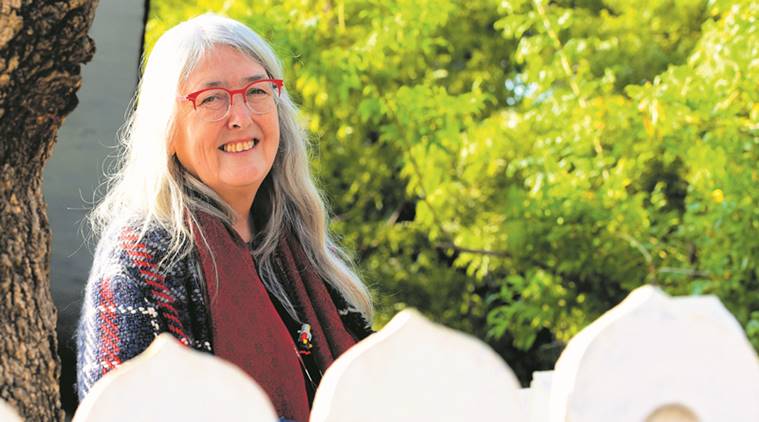Written by Paromita Chakrabarti |Updated: February 2, 2019 2:00:06 am
‘It would be naïve to think that one day nuance would happen on Twitter’
British scholar and classicist Mary Beard, 64, on the role of an academic in political debates, her apprehensions about the #MeToo movement and why historians can’t own the past.

You mentioned at one of your sessions here at the Zee Jaipur Literature Festival that academic and popular history are symbiotic. I was wondering if that is not without its risks. What are the chances of fiction being passed off as fact? We seem to have a lot of that happening across the world.
If you start to investigate how we have drawn the boundary between fiction and fact, it’s always been problematic. What we teach kids in school that facts are on one side and fiction on the other is very misleading. You see that even now in quite academic biographies. They are very happy to tell you what their character is thinking when they haven’t a clue. Now is that fact or is it fiction? Then you have got the fuzzy area of fake news in between. I think academic professionals, hardheaded historians really do have a role, which is to say that in no way do we want to restrict discussions on the past to people who have got history degrees. In fact, historians are very keen that people should talk about the past. They can’t control it and they can’t own it. It doesn’t belong to them. If the far right wants to take over Roman history for ideas of white supremacy, I can deplore it, I can say why I think it’s wrong, but I can’t say it’s mine, you are not allowed to speak here. So, for me, exploring that boundary between fact and fiction and getting people more sensitised to it, getting them to be able to enjoy the fiction of history while also understanding what its ideological role is, is important. That’s where professional and popular historians have got a big job to do.
What are your thoughts on academic freedom? Does it come with boundaries?
The idea is, is free speech absolute? It’s very easy to say as a slogan and a cliché, that yes, of course it is. And then you say, so what are the boundaries? I was talking to someone about this only the other day – a fiction writer. I was saying, look, we all defend free speech, what if we had a play on in London that was racist, anti-Semetic and had (Joseph) Goebbels as hero. Do we feel comfortable with that? She was very uncompromising, and said, yes, because it’s bound to be a bad play. There’s a very strong logic in that but are we quite so certain that it doesn’t get an audience? And that is precisely the tricky area. This is a very academic concept but I think the most you can do is make people aware that those issues are ambivalent. The fact that we don’t easily agree doesn’t mean that we have to be at war with each other. These are things that are very hard, and rightly hard, to agree upon. What people are allowed to say is one of the big issues that every political culture has always faced. We are not new in facing this.We need to examine it, talk about it outside some kind of echo chamber. I think sometimes you just have to say, I am terribly sorry, but that is not true.
Is that the role of the academic then in a political debate?
At one level, they contribute as citizens. The division between professional politicians and the electorate, I think, is a very damaging one — the idea that the electorate has somehow been reduced to people who just vote. The whole point about democracy is not just encompassing the idea of the democratic vote — we value that wildly, of course — but it’s also the fostering of an electorate who have the information and access to the information in order to exercise the vote responsibly. I don’t mean by that I am going down the Platonic route to say that only clever people should vote. Education is partly, not entirely, the education of a citizen voting body.






















No hay comentarios:
Publicar un comentario